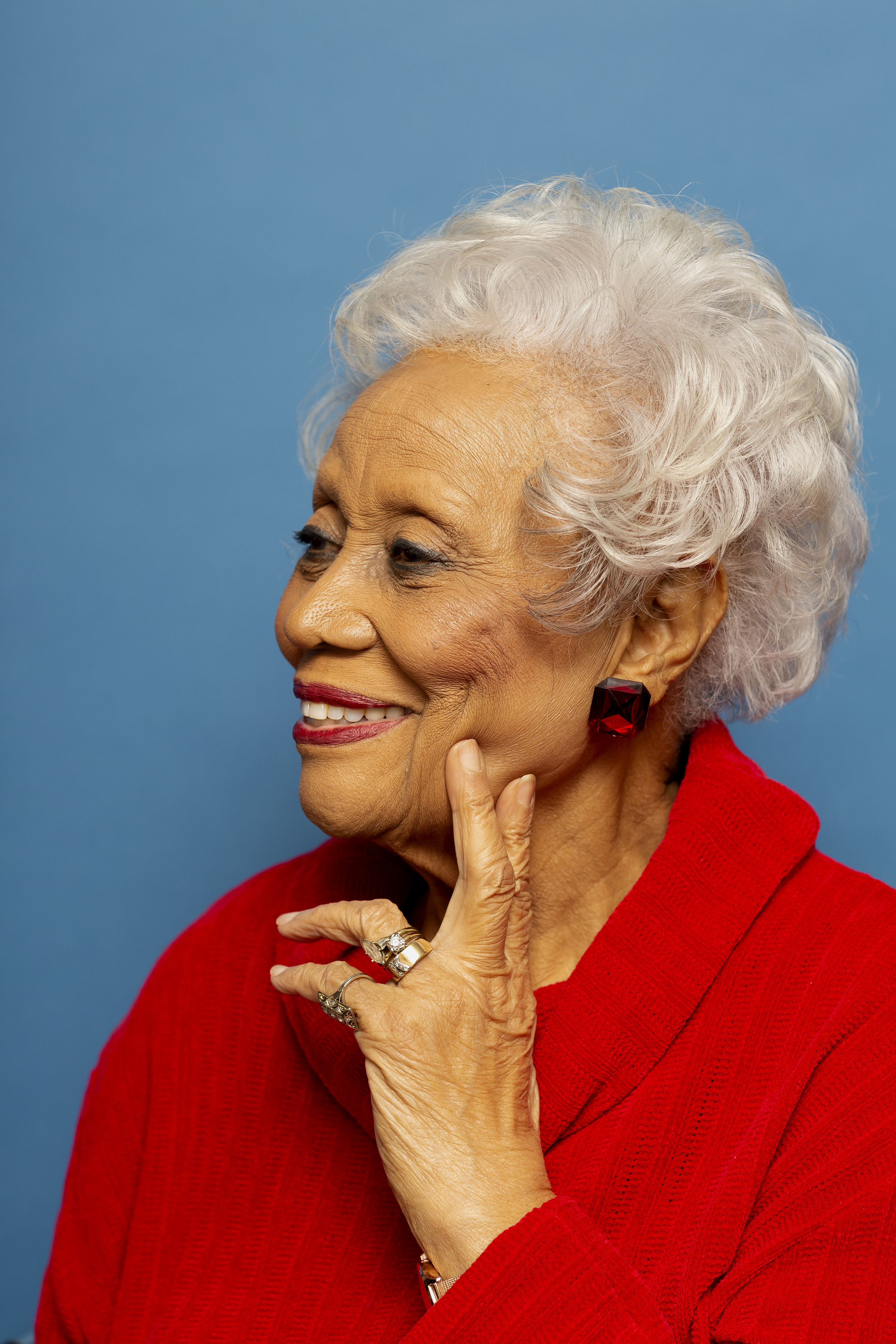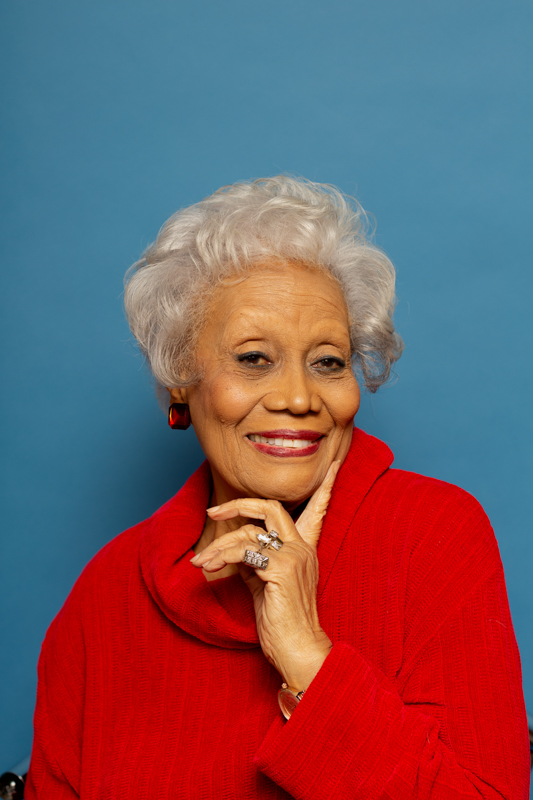Trudy
Trudy Haynes , 92, First Black female TV reporter in Philadelphia
I’m sure everyone who has been “the first” questions themselves. I would stop to think, “Am I doing this correctly?”, “Can I improve myself?”, “What do my people think of me?”
Some people might turn away from that pressure.
I always tell young people, don’t say no. Say yes and then let them find out it’s no. You don’t have to tell anybody that you can’t. You just say “I can.”
When I called the TV station in Detroit to tell them I was interested in the weather reporter position, the CEO asked if I had someone in mind and I told him, “Yeah, me.”
[Editor’s Note: In 1963, Trudy Haynes was the first African-American TV weather reporter for the Detroit station. In 1965, she went on to become the first African-American TV news reporter for KYW in Philadelphia. She now hosts The Trudy Haynes Show.]
I went off and auditioned for the position and got it. The CEO was probably scared about it. He had to face the backlash. There were a lot of people who were angry that he replaced his blonde little girl with a Black woman. I knew that I was headed into a situation where I didn’t have help, except for the man who hired me, and he was in an office. He didn’t care what happened as long as the numbers are right.
I’m sure there was a lot of envy and resentment. I heard the questions: “What is she doing here?”, “How is she going to do this?” I remember it was scary because I had to find out things for myself. I didn’t know anything about weather. I had a very attentive boyfriend at the time who suggested that I learn some of the words to use in giving the weather. He told me to go out to the airport and sit with some of the guys that use weather to direct the planes, and so, I picked up a couple of words.
He told me to go to the library and get a children’s book on geography, so I knew which states were where. I put it all together and I made it work. The program director at the time hated me. He was trying to get rid of me, because I was the Black woman. So, halfway through the second year, they started sending me out to report.
That’s how I thought of getting into interviews. I took that with a vengeance, because he told me he was ready for my contract to be taken back.
So they would send me out on anything and it was hard news. During that time, it was nothing but men. They would all sit around in their equipment and start playing cards.
So I learned how to play cards.
I made a habit of any story that I did to include in my presentations a Black couple or a Black child. I wanted to always make sure they were included, so people would get the idea that we are not alone, we are here together.
We (Black people) need to own more things and have control. We need control over our stories. So far, I’ve been fortunate enough for the last 20 years to do that. It hasn’t been wildly successful, but it has given me a lot of comfort in knowing that I can do it and that I’m in control.
Some of the Black journalists have succeeded and I’m happy for them. I watch them on TV and I can hear when they did the story and I can also see when their [influence] is not there anymore.
I didn’t know Oprah was going to come behind me. But people like that, who came after me, I (can only) hope that I set an example. I personally feel that if you are going to be a legend, you should leave something behind. That’s why I created The Trudy Haynes Legacy Campaign. Now, I want to put myself in a position that I can leave some help for someone else.
I’ve had people slam doors in my face. I’ve had people say, “You can’t sit here,” “You can’t go in there,” and “You can’t work here.” I’ve had doors slammed in my face. “You can’t live here. We don’t want you here, nigger.” I felt angry. But I can’t remember an incident where I was afraid. Mostly anger. Anger pushes you.
The [trailblazers] you were talking about, their spirit doesn’t get broken by that. They just keep forging ahead. That’s why you have firsts, leaders and people of distinction, because their spirits weren’t broken. They weren’t broken. That’s why they are here.




